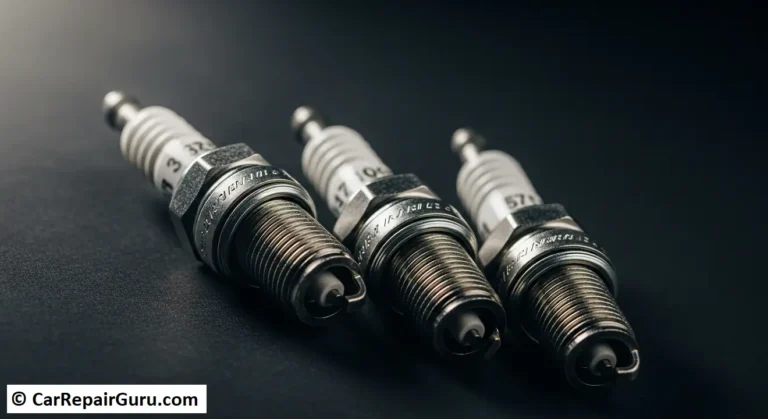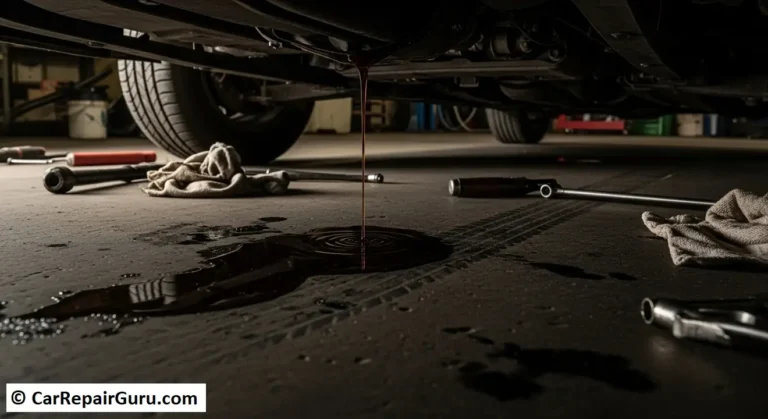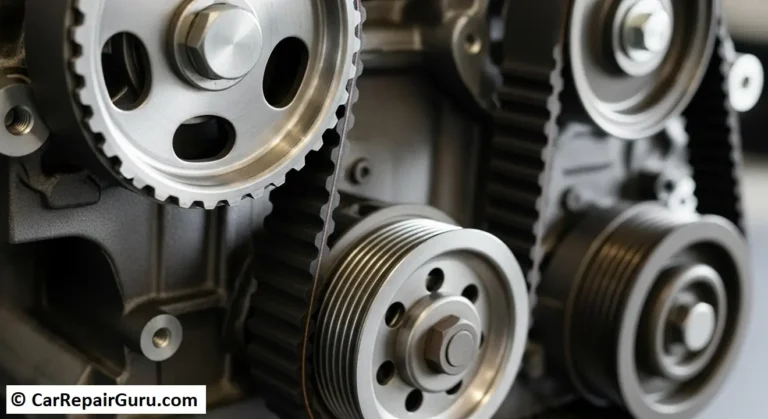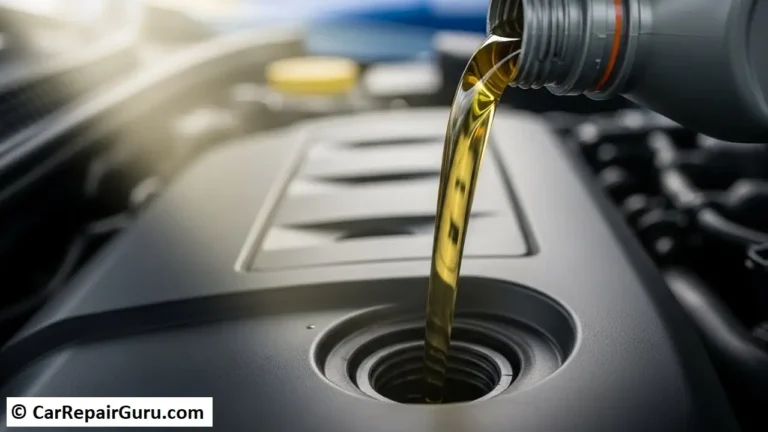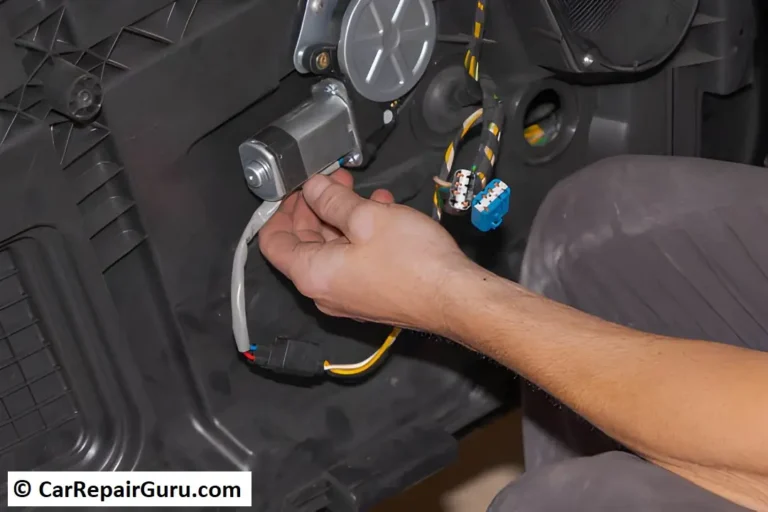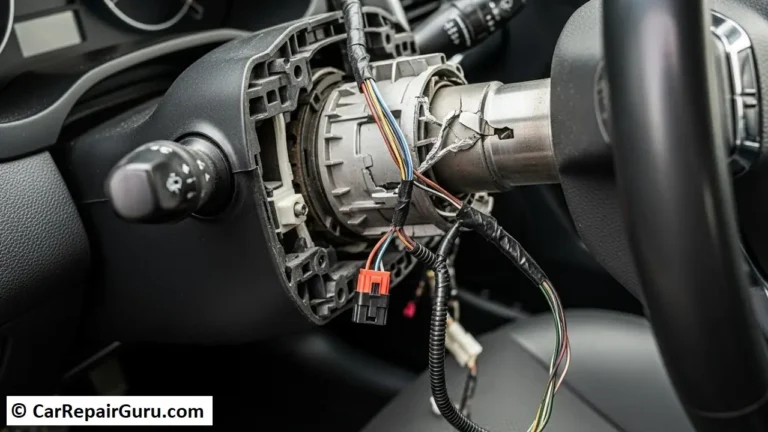
Engine misfires can feel like a minor hiccup in your car’s performance, but they shouldn’t be ignored. A misfire occurs when one or more engine cylinders fail to ignite properly, disrupting your vehicle’s smooth operation. Left unchecked, this issue can lead to reduced fuel efficiency, increased emissions, and even severe engine damage.
Understanding the causes, symptoms, and solutions is key to fixing engine misfires effectively. Whether it’s a faulty spark plug, clogged fuel injector, or something more complex, addressing the problem promptly can save you time and money while extending your car’s life.
This guide will walk you through the most common reasons behind engine misfires, how to diagnose them, and actionable steps to fix the issue. By the end, you’ll have the tools to troubleshoot confidently and know when to call in a professional. Let’s get started!
Common Causes of Engine Misfires
Engine misfires can stem from various underlying issues. Understanding these causes is crucial for identifying the problem and fixing it efficiently. Let’s dive into the most common culprits:
Ignition System Issues
Faulty spark plugs and ignition coils are leading causes of engine misfires. Spark plugs can wear out over time, failing to produce the spark necessary to ignite the air-fuel mixture in the cylinder. Ignition coils, responsible for amplifying the voltage for spark generation, may also fail, particularly in modern vehicles with coil-on-plug systems.
Fuel System Problems
A consistent fuel supply is vital for engine performance. Clogged fuel injectors can block the flow of fuel to the cylinders, leading to misfires. Similarly, low fuel pressure caused by a failing fuel pump or dirty fuel filter can disrupt the precise balance needed for combustion.
Vacuum and Air Intake Leaks
Leaks in the vacuum system or air intake can create an imbalance in the air-fuel mixture, causing misfires. Damaged vacuum hoses, intake manifold gaskets, or a malfunctioning throttle body can result in unmetered air entering the system, throwing off the combustion process.
Mechanical Failures
Internal engine components can also be to blame. Problems like a worn camshaft, leaking valves, or timing chain issues can interfere with proper cylinder compression or valve timing, leading to consistent misfires that are harder to fix.
Sensor and ECU Malfunctions
Modern engines rely on sensors like oxygen sensors and the ECU (Engine Control Unit) to monitor and adjust the engine’s performance. If these sensors send incorrect data due to malfunction, the air-fuel ratio or ignition timing may be affected, triggering misfires.
By understanding these causes, you’re one step closer to diagnosing and fixing engine misfires effectively.
Symptoms of Engine Misfires
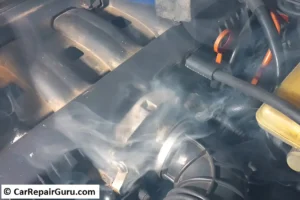
Recognizing the symptoms of engine misfires early can prevent more significant issues down the road. Misfires don’t always come with loud noises or dramatic signs, but the subtle clues they leave can be telling.
Rough Idling, Vibrations, or Loss of Power
One of the most noticeable signs of an engine misfire is rough idling. Your car might feel like it’s sputtering or shaking more than usual, especially at a stop. Vibrations during acceleration or a sudden loss of power while driving are also common indicators, as the misfire disrupts the engine’s smooth operation.
Check Engine Light
The check engine light is a crucial warning system. When a cylinder misfires, your car’s onboard diagnostics system detects the issue and triggers the light. This signal is often accompanied by a stored error code, accessible via an OBD-II scanner, which pinpoints the misfiring cylinder.
Increased Fuel Consumption
A misfiring engine burns more fuel inefficiently, leading to noticeable drops in gas mileage. This occurs because the engine compensates for the loss of power by overfueling, which can also increase harmful emissions.
If you experience these symptoms, diagnosing and fixing engine misfires promptly can save you from costly repairs and keep your car running smoothly.
Diagnosing Engine Misfires
Accurate diagnosis is the first step to fixing engine misfires effectively. By identifying the root cause, you can avoid unnecessary repairs and target the specific problem. Here are the essential steps to diagnose engine misfires:
Using an OBD-II Scanner
An OBD-II scanner is a valuable tool for diagnosing engine misfires. When a misfire occurs, the engine control unit (ECU) stores error codes that specify which cylinder is malfunctioning. For instance, a P0301 code indicates a misfire in cylinder 1. Plugging in an OBD-II scanner allows you to retrieve these codes quickly, narrowing down the possible causes.
Visual Inspection
A thorough visual check can reveal common issues. Start by examining the spark plugs for wear, carbon buildup, or damage. Inspect the ignition wires for cracks or signs of arcing. Don’t forget to check vacuum hoses and intake manifold gaskets for leaks or cracks, as unmetered air can lead to misfires.
Compression Testing
Internal engine problems can also cause misfires. Performing a compression test checks the health of your engine’s cylinders. Low or uneven compression readings suggest issues like leaking valves, damaged piston rings, or head gasket failure.
By combining these methods, you can systematically pinpoint the cause of the misfire, saving time and money on repairs. With accurate diagnostics, fixing engine misfires becomes a more straightforward and effective process.
Step-by-Step Guide to Fixing Engine Misfires
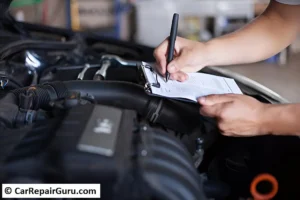
Fixing engine misfires can often be tackled with the right tools and some mechanical know-how. Here’s a step-by-step guide to addressing the most common causes:
1. Replacing Faulty Spark Plugs or Ignition Coils
Worn-out spark plugs are a frequent culprit behind engine misfires. Start by removing the old plugs and inspecting them for carbon buildup or wear. Replace them with new ones, ensuring they’re properly gapped. Similarly, if your ignition coils are damaged or malfunctioning, swap them out to restore proper spark delivery.
2. Cleaning or Replacing Clogged Fuel Injectors
Clogged fuel injectors can prevent fuel from reaching the cylinder, causing misfires. Use a fuel injector cleaning kit to clear deposits, or replace injectors that are severely blocked. Ensure the fuel system is clean to maintain optimal performance.
3. Repairing Vacuum Leaks in the Intake Manifold
Vacuum leaks disrupt the air-fuel mixture, leading to misfires. Inspect the intake manifold gaskets, vacuum hoses, and throttle body for damage. Replace any cracked or worn-out components, and reseal the system to prevent further leaks.
4. Addressing Mechanical Failures
Internal engine problems, such as a worn timing chain or leaking valves, require more advanced repairs. Timing chain issues can cause misfires due to improper valve timing, while leaking valves reduce compression. These repairs often involve significant disassembly and are best handled by a professional mechanic.
5. Tips on When to Consult a Professional
While many misfire issues can be fixed at home, there are times when expert help is necessary. If you’re dealing with persistent misfires, unexplained error codes, or internal engine repairs, consult a certified technician. Their expertise can save you from costly mistakes and ensure the problem is resolved thoroughly.
By following these steps, you can effectively tackle common causes of engine misfires and restore your car’s performance. Remember, regular maintenance and timely repairs are key to preventing misfires from recurring.
Preventative Maintenance Tips
Preventing engine misfires begins with consistent maintenance and attention to your vehicle’s needs. By following these preventative measures, you can keep your engine running smoothly and avoid costly repairs:
1. Schedule Regular Tune-Ups and Inspections
Routine tune-ups are essential for catching potential issues before they escalate. During these inspections, mechanics can identify worn components, such as spark plugs or ignition coils, and address them early. Staying on top of your vehicle’s service schedule ensures optimal engine performance.
2. Replace Spark Plugs and Filters at Recommended Intervals
Spark plugs and air or fuel filters play critical roles in engine efficiency. Old or dirty spark plugs can cause misfires, while clogged filters can restrict airflow and fuel delivery. Consult your vehicle’s owner manual to determine the recommended replacement intervals, and stick to them to avoid unnecessary problems.
3. Use High-Quality Fuel and Ensure Proper Engine Lubrication
Low-quality fuel can leave harmful deposits on injectors and valves, leading to engine misfires over time. Opt for high-grade fuel to keep the fuel system clean. Additionally, ensure your engine has proper lubrication by regularly checking and changing the oil. Clean oil reduces wear on internal components, improving longevity.
Adopting these maintenance practices not only prevents engine misfires but also enhances overall vehicle reliability and performance.
When to Seek Professional Help
While many engine misfire issues can be resolved with basic tools and knowledge, some situations demand the expertise of a certified automotive technician.
Situations Requiring Advanced Expertise
If your diagnostics reveal issues like low compression, timing chain wear, or internal engine damage, it’s time to consult a professional. These problems often involve complex repairs requiring specialized tools and in-depth mechanical knowledge. Persistent misfires, even after replacing spark plugs, coils, or injectors, may also indicate underlying issues beyond DIY repair.
Benefits of Consulting Certified Technicians
Certified mechanics have the training and equipment to accurately diagnose and resolve engine problems. They can identify hidden issues, such as faulty sensors or electrical problems, that may not be obvious through basic inspections. By seeking professional help, you ensure repairs are done correctly, saving time and preventing further damage to your vehicle.
Knowing when to call a professional can make all the difference in resolving engine misfires effectively and efficiently.
Conclusion
Engine misfires can disrupt your car’s performance and lead to costly repairs if not addressed promptly. Diagnosing and fixing the issue quickly ensures your engine runs smoothly and efficiently. Regular maintenance, such as replacing spark plugs and filters, inspecting vacuum lines, and using quality fuel, is essential for preventing misfires and prolonging your vehicle’s life.
By understanding the causes and solutions for engine misfires, you’re better equipped to handle minor repairs and recognize when professional help is needed. Prioritize your car’s health with routine care to avoid unexpected breakdowns and enjoy a reliable driving experience.
FAQ Section
What Causes Engine Misfires?
Engine misfires are often caused by faulty spark plugs or ignition coils, clogged fuel injectors, vacuum leaks, or mechanical issues such as worn valves or timing chain problems. Sensor malfunctions and ECU errors can also contribute to misfires in modern vehicles.
Can You Drive with an Engine Misfire?
While it is possible to drive with an engine misfire, it’s not advisable. A misfire can damage your engine over time, reduce fuel efficiency, and increase harmful emissions. Addressing the issue promptly is key to avoiding further complications.
How Much Does It Cost to Fix an Engine Misfire?
Repair costs depend on the root cause of the misfire. Simple fixes like replacing spark plugs or ignition coils typically cost between $100 and $300. More complex repairs, such as addressing mechanical failures, can range from $500 to $1,500.
How Do I Know Which Cylinder Is Misfiring?
An OBD-II scanner can pinpoint the misfiring cylinder by reading error codes stored in your vehicle’s ECU. For example, a P0302 code indicates a misfire in cylinder 2.
How Can I Prevent Engine Misfires?
Regular maintenance is the best prevention. Replace spark plugs, air, and fuel filters at recommended intervals, and use high-quality fuel. Periodic inspections of vacuum lines and ignition components also help keep your engine in optimal condition.
By staying proactive with maintenance and repairs, you can minimize the risk of engine misfires and keep your vehicle running smoothly.
